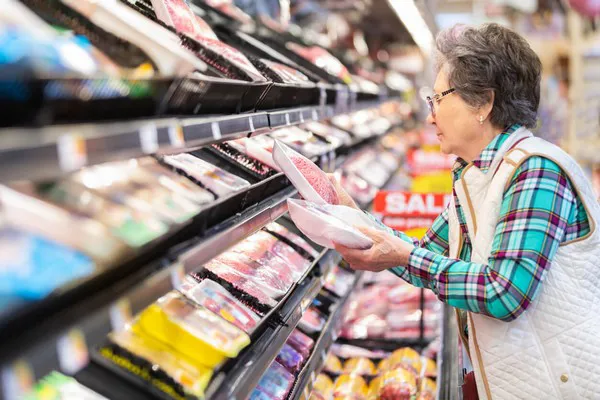Chances are good that you have felt the pinch at the grocery store and bemoaned the price of some of your standard weekly staples. Economists at the University of Georgia say to brace yourselves for more of the same in the upcoming months.
"In the case of eggs, the price increase has been dramatic and in a very quick timeframe," said Benjamin Campbell, associate professor in the Department of Agricultural and Applied Economics at the College of Agricultural and Environmental Sciences.
The average price for a dozen eggs has more than doubled in recent months. Retail egg prices increased 11.1% in December 2022, reaching 59.9% above December 2021 prices.

The reason for the price hike, explained Campbell, is a confluence of factors such as increased demand during the holidays and rising input costs for feed, fuel, and labor. More importantly, the increase is due to the impact of the highly pathogenic avian influenza (HPAI), a contagious disease that causes high mortality in poultry such as chickens, turkeys, and quail.
According to the United States Department of Agriculture (USDA), the current outbreak is the deadliest in U.S. history, present in 47 states and impacting more than 58 million birds, 300 commercial flocks, and 433 backyard flocks.
Farm gate values reported by the UGA Center for Agribusiness and Economic Development hail Georgia as the No. 1 producer of poultry in the country, but only 5% of the state's poultry produce table eggs, Campbell explained. "Most of our eggs come from Midwestern states, such as Iowa, which has suffered catastrophic losses from the ongoing outbreak."
Campbell said the impact of avian influenza and increased demand for eggs around Easter is expected to increase wholesale and retail egg prices through the first quarter of the year, as it takes several months for new layer hens to reach full maturity and begin producing eggs.
On a per-ounce basis, other protein sources, such as beef and pork, are more economical than eggs, so Campbell predicts people will be making substitutions more often in favor of these less expensive options.
 CAES economists (L-R) Ben Campbell, Gopinath Munisamy and Chen Zhen say that overall high retail food prices are likely to persist in 2023
CAES economists (L-R) Ben Campbell, Gopinath Munisamy and Chen Zhen say that overall high retail food prices are likely to persist in 2023
But what of those other staples? As consumers spend about 12% of their income on food, consumers will have to be flexible to optimize their grocery bills this year.
The USDA Food Price Outlook for 2023 predicts prices to decrease for beef, pork, and fresh fruits but increase for other meats, dairy products, fats and oils, processed fruits and vegetables, sugar and sweets, cereals and bakery products, nonalcoholic beverages, and other foods.
Gopinath Munisamy, the agricultural and applied economics department head, said the war in Ukraine continues to be one of the main drivers for increased agricultural product prices.
"A lot of our fertilizer and other commodities come from Russia and Ukraine, so until those two countries fully come back on the market, farmers will continue to pay higher prices for production," said Munisamy.
Farmers are often locked into a contract with grocery chains and retailers trying to keep their costs at a lower, more competitive rate, he explained. However, higher input prices, coupled with less availability and higher labor costs, have farmers absorbing a lot of these inflated costs.
"It's difficult to say with complete confidence, but plan for a slowdown in economic growth this year," said Munisamy. "There is a lot of unpredictability as we are still seeing issues on the supply chain, lower income growth and wage increases, and higher interest rates."
CAES economist Chen Zhen added that "the best consumers can do in anticipation of a possible recession is to build a buffer against an economic slowdown through higher savings. This is more difficult to do in a high-inflation environment. But there are cost-saving strategies grocery shoppers can deploy, such as buying generic brands, in bulk, products on sale and cheaper substitutes."
Source: caes.uga.edu
